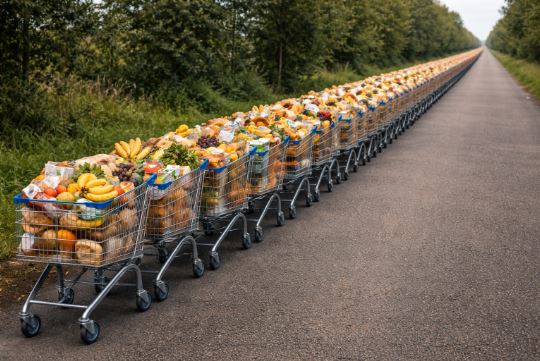
In 2025, Foodsharing Luxembourg continued and strengthened its commitment to fighting food waste thanks to an increasingly active community. Today, the non-profit organization has 306 volunteer Foodsavers, united by a common mission: to save food that is still perfectly edible but destined to be thrown away
Many people are unaware that most products carry a ‘best before’ date, which indicates quality rather than safety. In many cases, food can still be consumed well beyond this date without any health risk. Yet nearly 30% of food produced is still thrown away. It was in response to this situation that Foodsharing Luxembourg was created, with the aim of preserving the planet’s resources and taking concrete action against climate change by reducing food waste.
To carry out this initiative, Foodsharing now collaborates with 62 cooperations and partner stores across the country in the Foodsaving project. These partners share unsold food that is still edible, which is then collected by volunteer members. We are proud to work with partners that understand the significant impact of food waste on our climate, environment, and society. The quantities saved vary greatly: they can range from small collections of 2 kg to more than 20 kg in a single collection from a large retailer.
Saved food can also be dropped off at one of the country’s 3 official Foodsharing Points, which are accessible to everyone free of charge, in accordance with strict hygiene rules. These points are located in Differdange, Esch-sur-Alzette, and Lintgen, and allow food to be made available for free, with no conditions attached.
Foodsharing Luxembourg relies entirely on volunteers. Each member gives their time and energy to keep this solidarity network alive. The results alone in the Foodsaving project speak for themselves:
👉 In 2025, nearly 164.400 kg of food was saved across Luxembourg.
👉 Since 2019, Foodsharing Luxembourg has rescued more than one million kilograms of edible food. At an average of 50 kg per supermarket trolley, that represents a 20-kilometre line of fully loaded trolleys.
Beyond its daily rescue efforts, the non-profit organization also works to change the legislative framework in Luxembourg. Foodsharing advocates in particular for:
- a mandatory discount of at least 30% on products approaching their best before date or expiry/use-by date in the next 3 days,
- the sale at reduced prices of “ugly” fruit and vegetables that are perfectly edible,
- the obligation for businesses to donate food that is still edible,
- and greater awareness of anti-waste food practices at the national level.
We can all make a difference by changing a few everyday habits to reduce food waste. And if you’d like to take action even further, Foodsharing Luxembourg is always open to welcoming new motivated members.
You can also take part in one of the free zero-waste meals organized every month by Foodsharing members. The next one will take place on Sunday, January 25 at La Mesa – Maison de la transition in Esch-sur-Alzette.We would like to thank all the volunteers, active foodsavers, and partners for their commitment, motivation, and essential contribution to the fight against food waste in Luxembourg.
